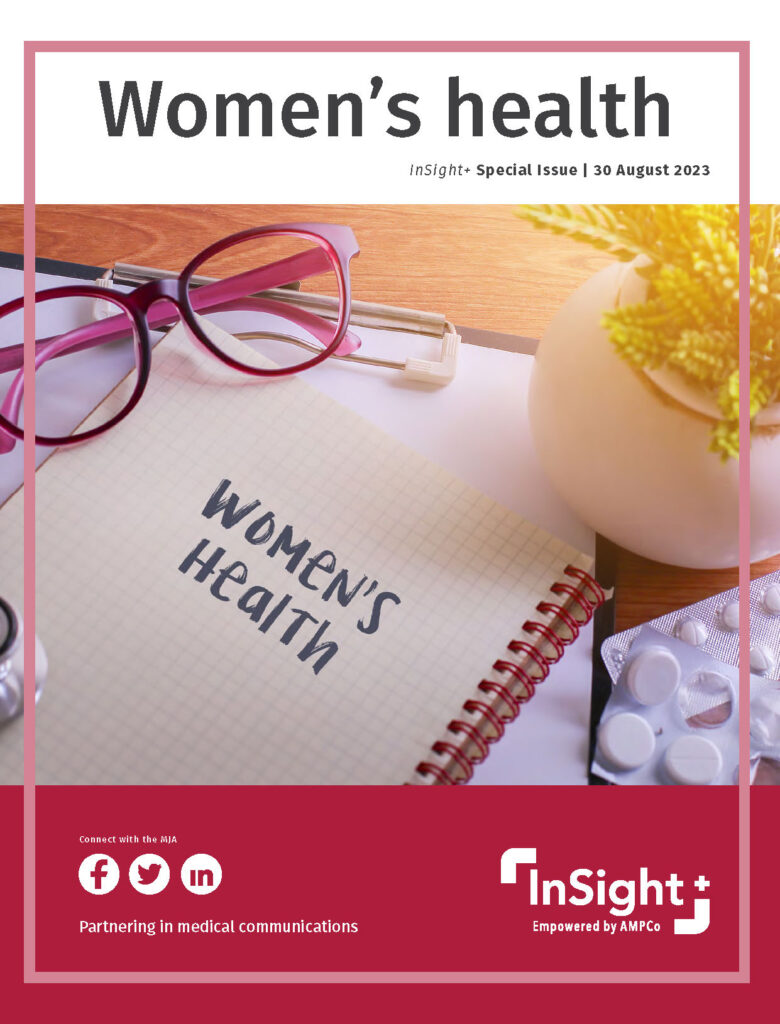Women’s health is in the spotlight this Wednesday with InSight+ releasing a special issue delivered straight to your inbox.
On 30 August, InSight+ will be releasing our first special edition newsletter to all subscribers.
The special issue, focused on women’s health, features four exclusive articles from InSight+ contributors.

The wonderful world of women’s health
Sydney GP Dr Aajuli Shukla shares the challenges of navigating contraceptive health care with her patients.
“Although women have several more therapeutic options for common menstrual issues that don’t go straight to a hysterectomy, it seems that vulnerable women are still missing out on treatment that suits them best,” she writes.
Dr Shukla argues that the way we talk about and value women’s health needs to change to make it more equitable.
“I find it incredibly difficult trying to explain exactly why the only contraceptive pill that works for them isn’t funded, or the combination hormone replacement therapy that’s worked wonders for them isn’t available any cheaper.”
“Most of these women who cannot afford it continue to suffer with their symptoms.”
The difficulties of treating menopause in Australia
Reproductive endocrinologist and gynaecologist Associate Professor John Eden looks at the current landscape of menopause treatment in Australia.
“Menopause is a much-neglected condition in Australia which can affect the woman, her partner and family, and even the workplace,” Associate Professor Eden writes.
“Of women who need treatment, probably less than one in five get any treatment, often a selective serotonin reuptake inhibitor rather than [menopausal hormonal treatment].”
In his article, Associate Professor Eden discusses the barriers that have prevented women from receiving treatment in the past, such as myths about cancer risks, while offering hope for the future with new education and funding initiatives.
Tall poppies: navigating gender bias as a woman in medicine
Dr Sidney Chandrasiri examines how tall poppy syndrome and unconscious rivalry among female leaders contribute to barriers facing women in health care leadership.
“Tall poppy syndrome continues to pervade most health care organisations, often unaddressed by executive teams and senior leaders, or alarmingly even being perpetuated by those who hold powerful and influential positions,” she writes.
“These largely unconscious biases and hidden professional female rivalries may have far more devastating consequences than intended.”
Diagnosing autism in girls
Dr Joanna Tsirgiotis, a psychologist, discusses the gender bias in our understanding of autism spectrum disorder (ASD), leaving many women and girls undiagnosed and unsupported.
“Considering girls for an ASD diagnosis is like trying to fit a square peg into a round hole if we don’t understand their presentations,” Dr Tsirgiotis writes.
Dr Tsirgiotis highlights how gender bias is even built into in the tools used for diagnosis.
“Given that autism is historically diagnosed more in boys than girls, our tools have been constructed based on research about boys,” she writes.
“That means that they are most sensitive to boys’ difficulties and do not adequately capture how girls tend to present.”
The special issue will be sent to all InSight+ subscribers on Wednesday 30 August 2023.
Subscribe to the free InSight+ weekly newsletter here. It is available to all readers, not just registered medical practitioners.

 more_vert
more_vert